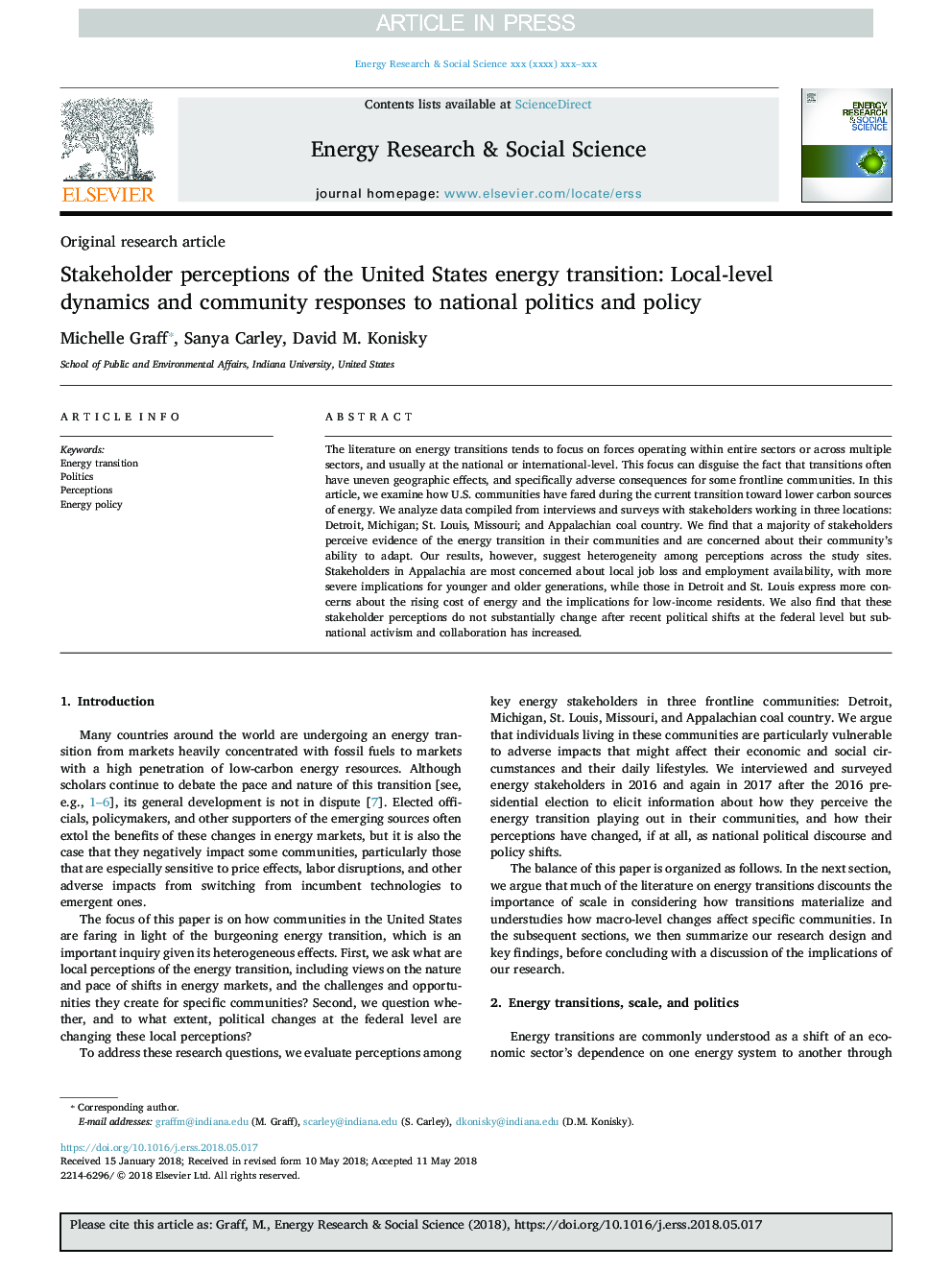| Article ID | Journal | Published Year | Pages | File Type |
|---|---|---|---|---|
| 8953318 | Energy Research & Social Science | 2018 | 14 Pages |
Abstract
The literature on energy transitions tends to focus on forces operating within entire sectors or across multiple sectors, and usually at the national or international-level. This focus can disguise the fact that transitions often have uneven geographic effects, and specifically adverse consequences for some frontline communities. In this article, we examine how U.S. communities have fared during the current transition toward lower carbon sources of energy. We analyze data compiled from interviews and surveys with stakeholders working in three locations: Detroit, Michigan; St. Louis, Missouri; and Appalachian coal country. We find that a majority of stakeholders perceive evidence of the energy transition in their communities and are concerned about their community's ability to adapt. Our results, however, suggest heterogeneity among perceptions across the study sites. Stakeholders in Appalachia are most concerned about local job loss and employment availability, with more severe implications for younger and older generations, while those in Detroit and St. Louis express more concerns about the rising cost of energy and the implications for low-income residents. We also find that these stakeholder perceptions do not substantially change after recent political shifts at the federal level but sub-national activism and collaboration has increased.
Related Topics
Physical Sciences and Engineering
Energy
Energy (General)
Authors
Michelle Graff, Sanya Carley, David M. Konisky,
